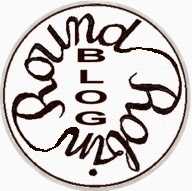Developing Tension in Stories
 While make-believe stories are meant to entertain, I think they have more important purposes. I believe fiction helps readers grapple with their own dilemmas and grow as individuals even when they are not aware of it. I believe the tension of 'what if' helps give readers knowledge of themselves and others. I think overall, fiction helps readers relieve the stresses of their daily lives and understand them better. Even fairy tails, folktales, and mythology have strong doses of tension because it keeps the reader reading and wondering about what happens next.Vladimir Propp and Dr. Carl Jung have already described how the psychological aspects of fiction holds true in folktales, and I think the process goes on in all fiction writing.
While make-believe stories are meant to entertain, I think they have more important purposes. I believe fiction helps readers grapple with their own dilemmas and grow as individuals even when they are not aware of it. I believe the tension of 'what if' helps give readers knowledge of themselves and others. I think overall, fiction helps readers relieve the stresses of their daily lives and understand them better. Even fairy tails, folktales, and mythology have strong doses of tension because it keeps the reader reading and wondering about what happens next.Vladimir Propp and Dr. Carl Jung have already described how the psychological aspects of fiction holds true in folktales, and I think the process goes on in all fiction writing. When I read it is the tension within a story that keeps me reading, although I do not like a top-level constant dose of violence and endangerment. Sometimes it feels like I have, and have had, enough of that, thank you. (Not cliff hangers, just life's daily dose.)
Tension can also be of the contemplative type, of making an important choice and then having to live with the results. And it is not just about a character's goal and how they accomplish or fail to achieve their heart's desire, or the violence or danger they fall into. Tension can develop from a character's weaknesses and how they test themselves, or two or more characters head-butting one another until they come to agreement or part ways. Mostly it’s about emotion, plans that go amuck, and a character overcoming their failures and falls from grace. The joy is that there are millions of stories with more coming every day, and all with their own interesting tension.
From my own reading experiences I know that the more visceral the description of a character's emotions and their physical reactions, or their relationship interactions or integration with their environmental as shown in a story, the more my mind and body reacts to the reading. These tensions also help me identify with the character.
I think readers nearly always identify with these and feel what the character feels. This does not necessarily mean trauma or extreme violence, although as previously discussed in Danger and Sometimes Violence in Writing, these can come into developing a story's tension. I think most readers identify the characters when these reactions are well described and this draws them into the story.
Please visit the following authors and see their opinions on tension in stories.
Beverley Bateman
Anne Stenhouse
Skye Taylor
A.J. Maguire
Dr. Bob Rich
Helena Fairfax
Diane Bator
Judith Copek
Published on October 20, 2018 06:56
No comments have been added yet.



